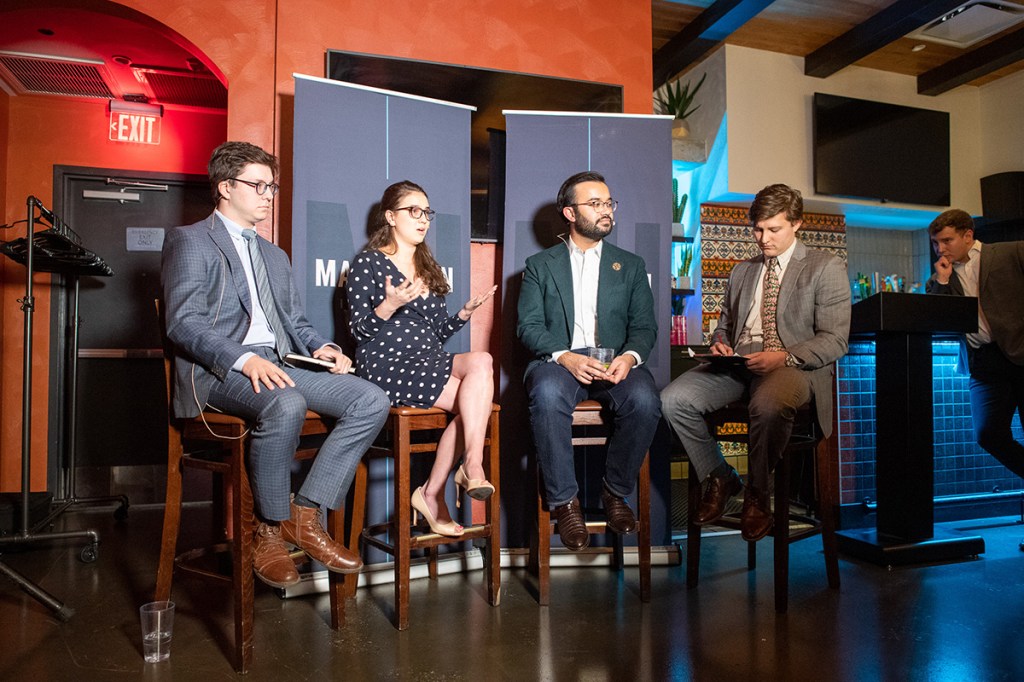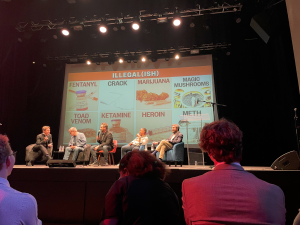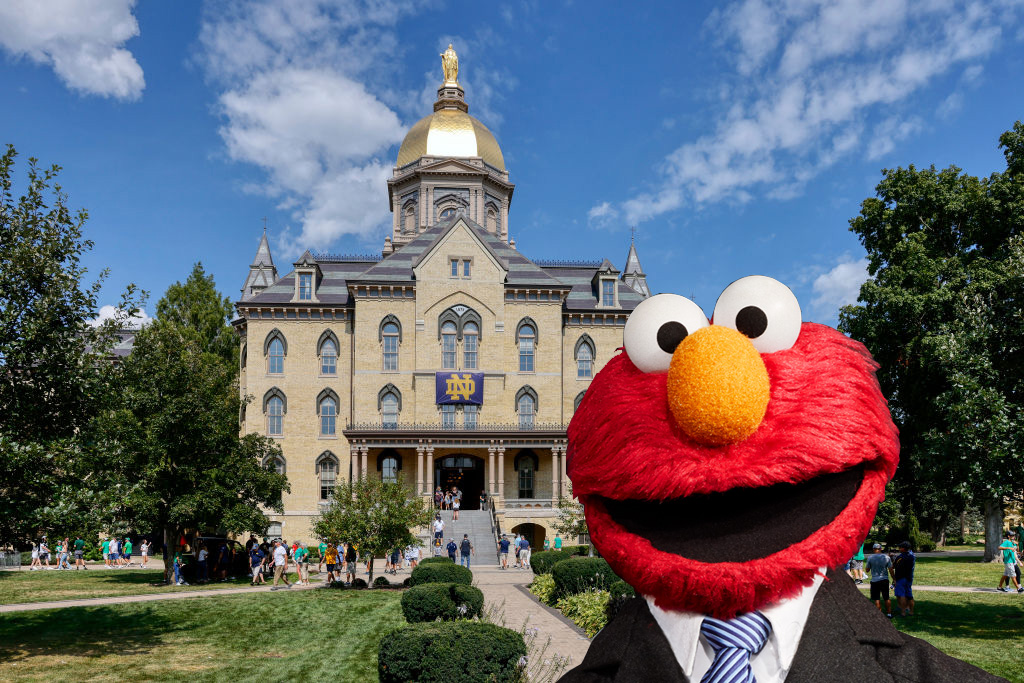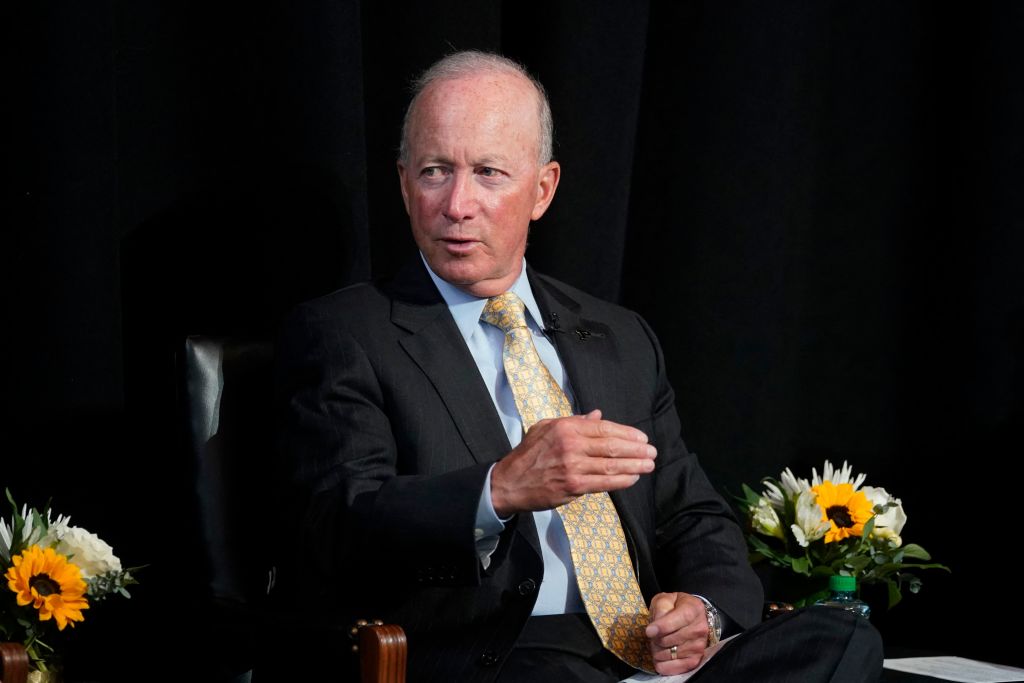What is the future for American conservatism? That was the question posed at a Manhattan Institute event on Thursday night, which Cockburn sauntered down to after hearing there would be an open bar.
The evening’s discussion was centered on “millennials, Gen Z, and the future of American conservatism” and unfolded in an upstairs area of Mission Navy Yard, a bar that more commonly plays host to blitzed Hill intern makeout sessions.
What a stroke of good fortune that three of the young journalists tasked with charting the path forward for American conservatism were recent products of National Review‘s internship and fellowship schemes. The panel was chaired by Teddy Kupfer, now of City Journal, and featured NR‘s Alexandra DeSanctis and the Wall Street Journal‘s Elliot Kaufman. “The challenge will be conveying ideas in ways that internet-addled, millennial-Gen-Z minds can understand. But that describes me too, so I think I’ll be up to it,” Kaufman told Cockburn earlier on Thursday.
The night’s ambassador for the New Right was American Moment president Saurabh Sharma. Cockburn caught Sharma beforehand and asked if he was expecting a bloodbath. “It’s gonna be fun,” he said. “I’m not looking to start any fights — but I will end any fights.”
Around two hundred mostly male attendees milled around the venue, supping Pacifico and Old Fashioneds and snacking on sliders and quesadillas. Cockburn spotted contingents from NR, the Washington Free Beacon and the Washington Examiner.
Cockburn attempted to secure a prime seat for the brawl, and so placed his coat on an available one. Ever the gent, he then popped over to the bar to grab refreshments for a female friend. Upon his return, Cockburn discovered that another attendee had moved his coat to the back of the room and reserved the seat for someone else. Lamenting the death of property rights as a core conservative principle, he retreated to the secondary room and watched the discussion on a TV monitor.
Proceedings kicked off with a lengthy introduction from the Manhattan Institute’s Jesse Arm, who described the task ahead of the American right in building a coalition between competing constituencies. His mention of “libertarians” garnered a single “boo!” from the second room.
Then it was into the fray. Kupfer steered the discussion while dressed in a light gray suit and an appalling tie (a hand-me-down from his father, Cockburn later learned). Kaufman, also in a gray suit, kept his notebook firmly clasped on his lap throughout the conversation. In contrast, Sharma was holding his gin and tonic and clad in a dark blazer, white shirt and blue jeans, in what could reasonably be dubbed “J.D. Vance chic.” He seemed willing to tackle the “standing athwart history yelling ‘stop’” approach to conservatism head on: “I look for more than just a reactive agenda… but an actual positive one,” he said. To his right, NR‘s DeSanctis sported a polka dot dress and a thousand-mile stare: just call her Xanax DeSanctis.
Topics ranged from Critical Race Theory to foreign policy to prospective future presidential candidates. One flare-up came when Kauffman stressed the need for the US to help Taiwan in any way they can; Sharma replied with a “spheres of influence” argument, stating that the US couldn’t even stop China’s influence on their own hemisphere, as Argentina has just joined the Belt-Road Initiative.
Sadly in the second room, the gathered millennials and zoomers were paying far more attention to each other’s company — and to the free bar — than to the panel itself. This made it rather hard for a man of Cockburn’s vintage to follow along fully with the debate. From what he could gather, the conversation remained largely civil, the future is bright, and the broad coalition to unite the American right can be built anywhere there’s free drinks.

























